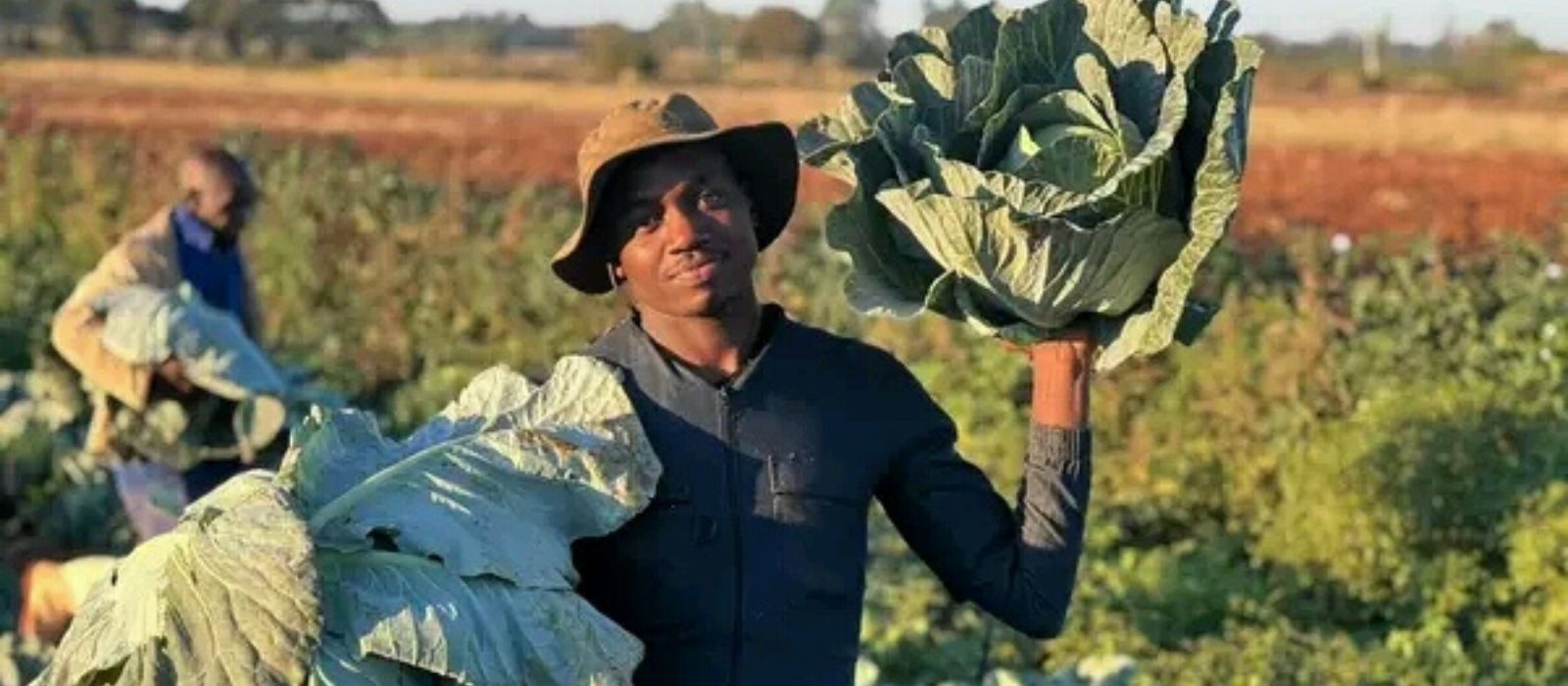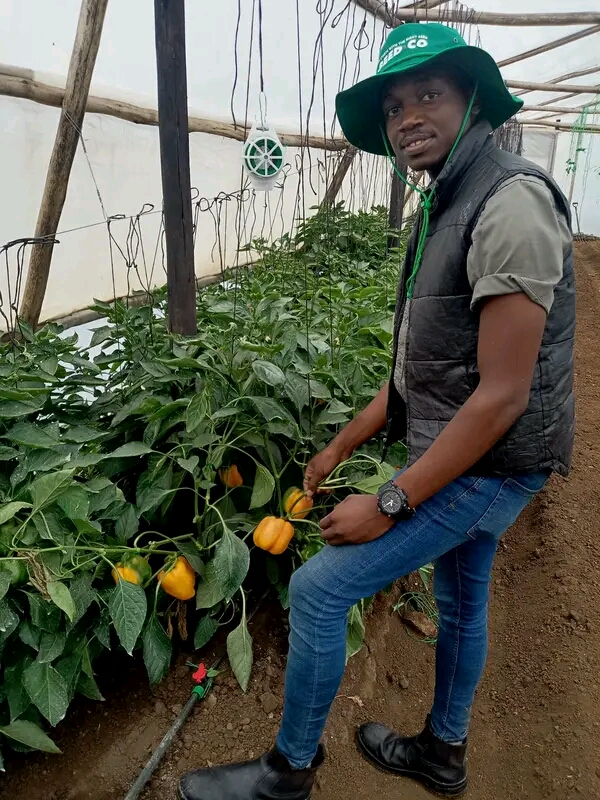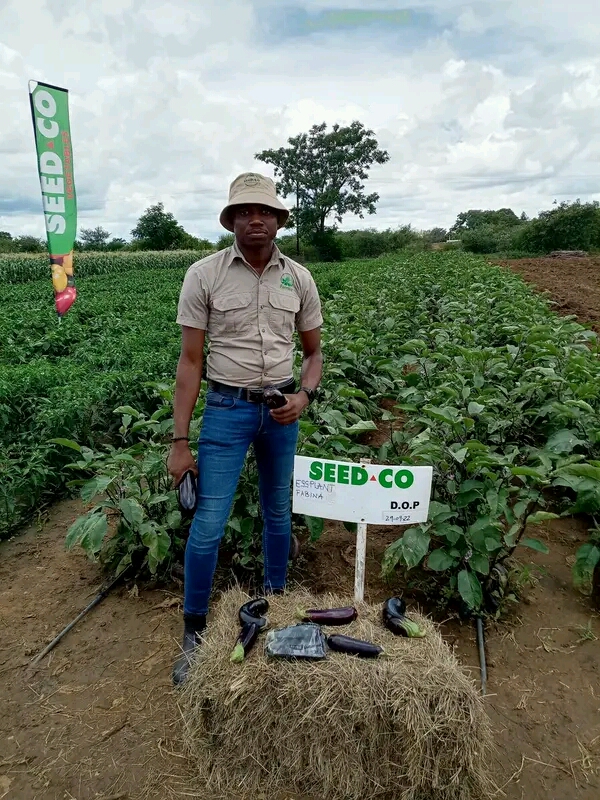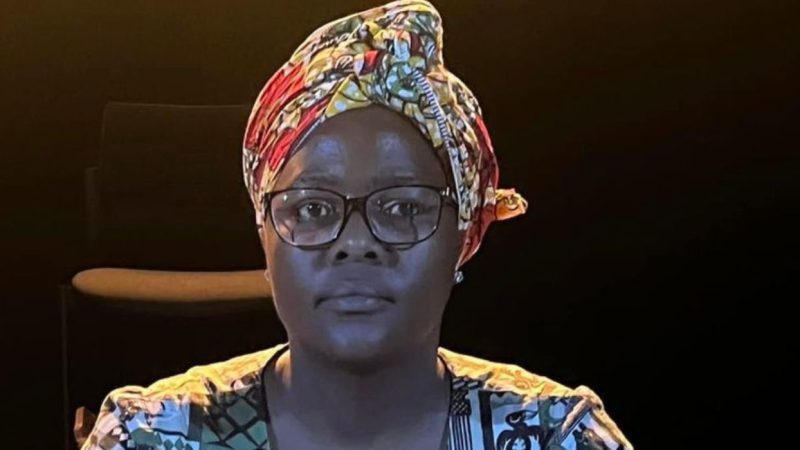Tackling Climate Change and Challenges: An Exclusive Interview with Young Zimbabwean Farmer, Perfect Ngulube

Agriculture is currently the world’s largest and fastest-growing industry, with many young people recognizing the potential to become entrepreneurs through farming. However, like any industry, agriculture faces challenges, including climate change, lack of financial sponsorship, and unequal land distribution.
My Afrika Magazine reporter Tapiwanashe Rubaya (TR) visited a commercial farm in Zimbabwe run by young farmer Perfect Ngulube (PN), aged 28. In this exclusive interview, Mr. Ngulube discusses how he manages to tackle climate change and the challenges faced by young Zimbabwean farmers. He also shares his advice on how to succeed as a young commercial farmer.
TR: Mr. Ngulube, can you introduce yourself to our readers?
PN: Perfect Ngulube is a 28-year-old agricultural entrepreneur from Bulawayo. I am an experienced farm development consultant, farm manager, and agronomist with a demonstrated history of working in the agricultural industry. Skilled in strategic management, sustainable development, business and agricultural production planning, and leadership, I have worked with many well-established brands in the agricultural commodities space, including Klein Karoo seed marketing, SeedCo, Farmbiz Valley Seeds, and the National Agricultural Marketing Council. I hold a Diploma in Agriculture from Esigodini College of Agriculture in Matabeleland South Province and am currently pursuing a BSc Honours Degree in Crop Science at Lupane State University.
TR: What inspired you to venture into farming?
PN: I never planned to be a farmer. However, fate led me to farming when I enrolled at an agricultural college in 2018. I began to understand the importance of being part of the production chain in the food industry. My love for the field intensified during my internship at the Department of Research and Specialist Services. That’s where the magic began, and I realized it was a great field to be part of.
TR: Can you describe the agricultural activities conducted on your farm?
PN: I would love to take you to my farm. We engage in various agricultural activities, including crop production and livestock farming.
TR: What skills are needed to be identified as a professional commercial farmer?
PN: The steps towards becoming a commercial farmer include:
- Start small and expand.
- Learn by doing.
- Decide on and research your niche.
- Secure your land.
- Get finance for equipment and products.
- Sell and distribute your product.
TR: Why do you think younger people need to be exposed to agriculture?
PN: When I was in school, not many people considered agriculture as a career path. However, the world now needs people who are hands-on in their craft. Exposing youths to new technologies and innovations in agriculture will change their perspective. Smart technologies have made farming more efficient than the primitive methods used in the past. Young people can transform the agricultural sector by applying new technologies and new thinking.


TR: What are the major challenges you face as a young commercial farmer?
PN: Young farmers lack land titles or other assets such as cars or motorcycles that formal banks accept as collateral. Additionally, the lack of technical, business, and financial literacy among youths further limits their ability to attract potential loan guarantors.
TR: How have you managed to overcome some of these challenges?
PN: I have overcome some challenges by partnering with farmers who have land but lack the know-how. I assist them in making their farms sustainable in exchange for farming land. This strategy has been working well.
TR: Have you made any contact with government officials regarding the challenges you face?
PN: I have tried accessing youth loans and government loans from banks like AFC Bank and Empower Bank. However, these are long-term processes that I believe will yield results eventually.
TR: With climate change affecting us, are you still using the traditional schedule for crop planting?
PN: I have introduced measures such as promoting effective irrigation, efficient use of water resources, strengthening early warning systems, and using GIS remote sensing systems to manage the effects of climate change. I work closely with meteorological services to stay updated.
TR: Who are your clients?
PN: I sell my farm produce to local retailers, including Pick n Pay, OK Supermarkets, Greens Supermarkets, and the Bulawayo Fresh Produce Market, one of the biggest markets in Matabeleland.
TR: If you were the Minister of Agriculture, what would you do to make it easier for young farmers to enter the commercial agriculture sector?
PN: I would make access to land easier for young farmers and ensure that government loans are accessible to the youth. They are vibrant and have fresh ideas that could significantly enhance food security, potentially restoring our country as the breadbasket of Africa.
TR: Any advice for young prospective farmers?
PN: I encourage young farmers to start their own projects and only expect the government to support them halfway. For those with academic qualifications in farming but struggling to find work, consider other fields to succeed in life.




